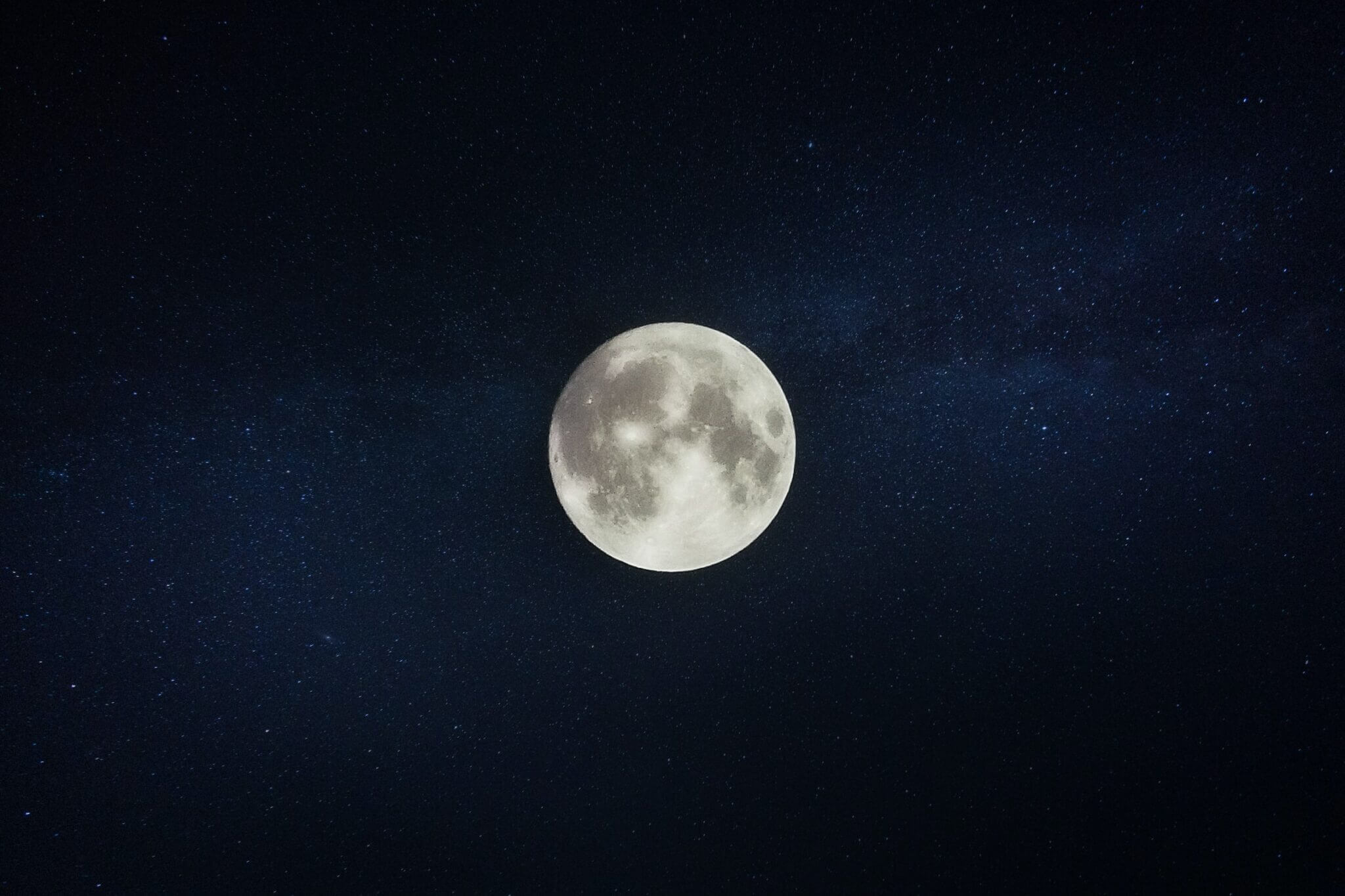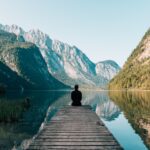Humans spend roughly a third of our lives doing it, yet scientists still don’t really know what sleep is for, nor why we need it[1]. Yet going without sleep will cause death sooner than going without food, so it must have some incredibly important and evolutionary ancient function…
Some theories suggest that sleep is essential to keep the brain in working order. It may support the organisation of memories, or allow the synapses (nerve junctions) in the brain to be cleared of toxins that build up during the day. Maybe it’s just to keep us away from potentially hazardous situations for a length of time… All good reasons, but none of them powerful enough to drive the evolution of sleep, leaving its main function an elusive mystery…
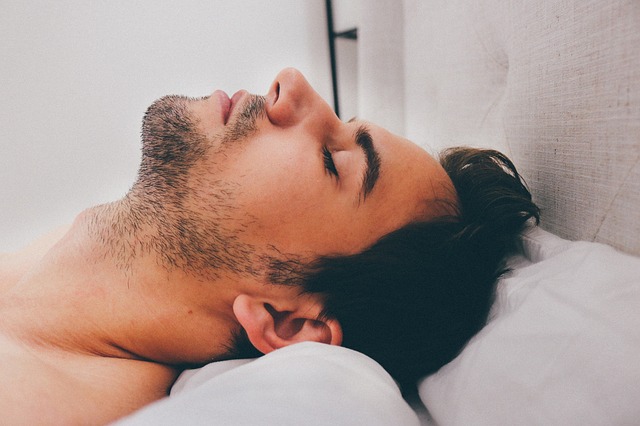
Why do we sleep?
All but the most incredibly basic of animals need to sleep, and yet scientists don’t know why this strange state of suspended animation is vital to survival.
Some believe that sleep is a way to conserve energy and stay out of harm’s way[2]. Animals that stay still and quiet during part of the day are less likely to have accidents or be eaten by predators. Sleeping also uses up fewer calories than being awake, meaning animals need to find less food each day than if they don’t sleep[3]. But this only really explains why we rest during the night – surely it would be safer to stay still and quiet but conscious, so that if a predator stumbles upon your hiding place you can escape? Also, this theory might explain why sleep is a good idea, but it doesn’t explain all the problems that are caused by missing out on getting enough sleep.
Other researchers think that sleep is when the body repairs itself[4]. This seems plausible – we all feel better after a good night’s sleep. However, this theory seems to suggest that people who are more physically active (and so need more bodily repair) should sleep more than those who are inactive. But although there is some evidence athletes sleep more after a race than normal, those who are completely inactive don’t sleep any less[5].
Most impairments from sleep deprivation are cognitive, suggesting sleep must be important for the brain. There’s some evidence that the cells in the brain responsible for repair and restoration are more active during the night[6], so perhaps the brain that needs time to recuperate, not than the body. In mice, a study by scientists at the University of Rochester found that cerebral spinal fluid flows around the brain ten times faster when they’re asleep[1]. This flushes out toxins more efficiently. The researchers argue this could explain the need for sleep, and the problems that occur when we don’t get enough of it. But others are sceptical, and there’s not yet any evidence in humans[7].
Another theory is that sleep is for storing memories. Researchers are not clear exactly how this happens, or why sleep is needed, but studies have shown that people are better at remembering things after sleep[8]. Yet whilst this explains the cognitive difficulties people face when sleep deprived, it can’t explain the physical symptoms.
Maybe none of these theories are even close, or maybe more than one is needed to fully explain why sleep matters. What we do know, though, is that people who get enough sleep (around 8 hours a night for adults) are healthier, happier and more successful… what better reason to get some shut-eye?
Learn more about Function of Sleep. 2
Crucially, however, this isn’t true for a small proportion of the population: sleep mutants. Sleep mutants have a gene mutation that lowers natural sleep demand. Several have been discovered: some lower average sleep demand by 20 minutes, whilst others allow the carrier to have a good night’s sleep on as little as 4.3 hours. There may be others as yet undiscovered. Scientists are still wondering where these genes came from and how long they’ve been about: they are rare. Even recently evolved advantageous genes, however, such as the one that lets adults digest milk, spread fast. And these genes are stranegly advantageous: carriers don’t seem to suffer from the myriad of illnesses that otherwise correlate to sleep deprivation, such as obesity or depression. However, we’d need to do longitudinal studies with huge numbers of people to know for sure. Currenty, not enough sleep mutants have been discovered to do this. In the future, scientists might be able to develop drugs that mimic the effects of specific mutations. However, some, such as NPSR1, have other key functions. This gene is involved in stress and fear responses, so mimicking its effects poorly could have devastating effects we can only guess at. 2
How do we sleep?
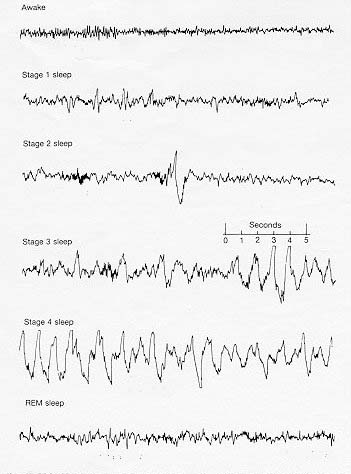
The reasons behind how we sleep are distinct from the potential reasons behind why we sleep. This is made even harder by the challenge of identifying when the brain enters a sleep-like state. Changes in the measures which are currently used to determine sleep can be subtle. Even in the current ‘gold-standard’ of measuring sleep, the EEG, there are discrepancies. For example: a hyperventilating teenager can produce the delta waves characteristic of our deepest sleep stage, despite being fully awake.
Although we understand how the brain transitions between the stages of sleep that we know about, such as REM, scientists have yet to explain how the brain transitions from wakefulness to sleeping and vice-versa. It is possible that it is a self-organised process where only certain sections of the brain need to be in a sleep-like state to send us to sleep[9], but this is not entirely clear.
As Joshua Fleming so aptly stated on our blog in 2015, for now, the solution to how we sleep is only something we can dream about
.
Learn more about How do we sleep?.
Why do we dream?
Sleep itself may be a mystery, but so are the many strange occurrences that we experience while we sleep – the most well known of which is dreaming. We don’t know why we dream, or if it even has an evolutionary benefit, but studies hint at potential reasons.
One idea is that dreams help us process memories which have formed during the day, and convert them into more stable long-term memories[10]. We know that sleep is vital for this process, but whether dreams help isn’t clear. Interestingly, young babies spend a higher proportion of their sleep in REM sleep (the phase during which dreams are most likely to occur). As babies learn more rapidly than adults, could this mean they need to dream more to process the information?
Another idea is that dreams help us deal with difficult emotions in a safe way. They may help remove emotions from painful memories so we can recall them without experiencing the emotions as strongly. They may even help prepare us for potential future emotional situations, by letting our brains a rehearse. But this theory is difficult to prove.
One final idea is that dreams aren’t ‘for’ anything at all – they are simply a byproduct of the other vital processes out brain carries out during the night. Will we ever be able to determine which of these theorise is correct, or will dreams remain a mystery? Only time will tell…
Learn more about Why do we dream?. 3
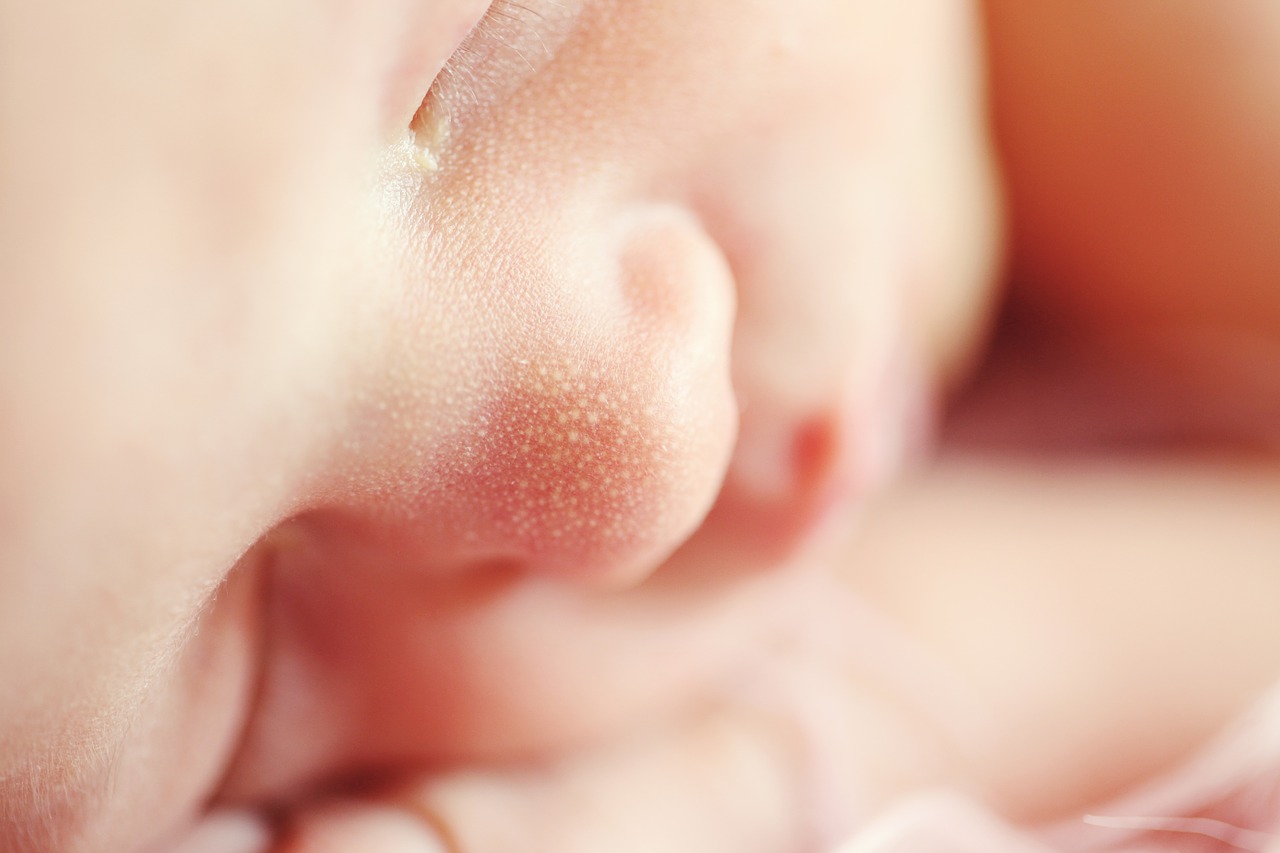
Scientists believe that everyone dreams, but not everyone remembers these dreams when they wake. We don’t know exactly why this is, although part of the reason may be that high recallers spend more time awake during the night, suggesting they are more likely to have woken up part way through a dream, which we know increases your chance of remembering it. This isn’t enough to explain all the differences, however.
You have the best chance of recalling a dream if asked about it within 5 minutes of waking – after this, much of the detail is lost. So maybe those who remember dreams make an effort to recall them during this window and, in doing so, store them for later. If you want to recall more of your dreams, experts suggest keeping a dream journal, and writing down details in it as soon as you wake. There are also brain differences between low recall and high recall groups. For example, high recallers are more “responsive” to their name being called when awake, and show a greater brainwave change – although the difference doesn’t occur when asleep, so it’s not clear how it links to dream recall. One brain scanning study found high recallers have more activity in a part of the brain called the temporoparietal junction[11]. The researchers believe this may allow the dreamer to focus more attention on external stimuli, meaning dreams are better embedded in the sleeper’s memory.

Some people experience lucid dreaming – dreaming whilst aware that they are dreaming – and some even feel they are controlling the direction of their dreams. It is difficult to know for sure whether lucid dreaming is real sleep, but because it occurs during REM sleep, dreamers can use pre-arranged eye signals to communicate with researchers. We don’t know how people are able to control their dreams, nor whether or not this means they’re “truly dreaming” or a daydream-like state of semi-wakefulness. The phenomenon warrants further study.
Researchers using fMRI to scan brain activity during dreaming have developed a process that can map the images recalled by the dreamer to a 3-dimensional picture of the brain. Known as “dream decoding”, the process works by repeatedly waking a sleeper and asking what they remember, then pairing this with which bits of the brain light up in the scanner. After over 200 repeats, researchers have been able to use the tool to predict basic objects that appear in the dream[12], including men, words and books. The tool initiaaly was 60-70% accurate, but could be improved with more data.
Strange sleep behaviours
Most of the time when we’re asleep, our bodies are inactive. In fact, during REM sleep, our muscles (other than those around our eyes) are actually paralysed. But some people are far from inactive during the night. Sleepwalking is relatively common in children, though we don’t know why. It is not usually a symptom of any underlying condition – and most children grow out of it, although some adults do it too. Mostly, it happens during slow wave sleep, when muscles aren’t paralysed. It is effectively a state between sleep and wakefulness – a person may walk around with a glazed look or even perform complicated behaviours such as driving. Occasionally, they may become violent and try to hurt themselves or others. When they awake, they usually have no memory of the episode. We don’t know what causes sleepwalking, but it’s likely to be some kind of disruption to the normal sleep cycle, and is more common when people are sleep deprived. However, when it comes to the old adage that it’s dangerous to wake a sleepwalker, scientists disagree about whether it’s true!
![Sleepwalker Photograph courtesy Max Pixel [CC0]](https://www.thingswedontknow.com/img/sci/sleepwalking-young-red-model-sleep-pillow.jpg)
New research has correlated sleepwalking and other movement during sleep (REM sleep behaviour disorder) with an increased risk of developing dementia with Lewy bodies (proteins in the brain)[13] – the type of dementia seen in Parkinson’s and Alzheimer’s. The correlation is stronger in men than in women, and scientists can’t yet say why.
In sleepwalking, the body is active but the mind is asleep, but the opposite is also possible, and is known as sleep paralysis. Few have heard of it, but sleep paralysis is actually a common experience, affecting 40% of people at some point in their lives! When we sleep, we go through different phases. In one of these, REM sleep, we experience dreams, our eyes move around rapidly, and the rest of our muscles become paralysed. Sleep paralysis is thought to occur when something goes wrong with this process, and the ‘mind’ wakes up while the body is still asleep and paralysed.
Realising you’re paralysed is scary, and scientists believe it’s this fear response that causes many people to feel there are other people in the room. It’s believed that many reports of ghost sightings, alien abductions and even witchcraft during the historical witch trials may be down to episodes of sleep paralysis! Scientists are still trying to find out why sleep paralysis happens.
Learn more about Sleep Paralysis – A Ghost Story.
Another common sleep phenomenon is the hypnic jerk. This is an involuntary twitch or startling motion just as you’re falling asleep. A myoclonic jerk related to hiccups, these amusing, irritating and bizarre performances affect us asymmetrically[14] – we’re not sure why. According to a 2016 study[15], 60-70% of people experience them, whilst others[16] think they happen to everyone.
Some may also feel a falling sensation, or a sense of blinding light. Sometimes they are felt, but no motion is seen, and sometimes they can be seen by others or monitored with EEG (encephalogram), but not felt by the sleeper. When it happens, your heartbeat and breath quicken, and some people sweat. You’re more likely to experience it if you have an irregular sleep pattern, suffer from stress or anxiety, did something strenuous before falling asleep, or have dosed up on caffeine[17][18]. …But these aren’t causes – otherwise teetotallers would never get it, and it could be artificially induced with several large coffees. So what is it? Why does it happen? Although we’re not sure, theories go that the sleep start is
(i) to help you not fall out of a tree as you relax
(ii) your body mistaking relaxation for falling out of a tree
(iii) due to changes in blood pressure and body tension as you relax.
In fact, nobody knows why they happen, or what their evolutionary purpose might be.
Learn more about Starting Again.

A less common syndrome that can be accompanied by a hypnic jerk is exploding head syndrome (EHS). This is a kind of recurring auditory hallucination characterised by suddenly hearing loud but non-existent short duration noises, often when falling asleep. There is a correlation between people who suffer from exploding head syndrome and people who’ve had sleep paralysis just once. Mostly, it happens in that stage between sleep and wakefulness. There is currently no treatment, but understanding the condition can reduce the frequency of episodes.
Theories suggest it occurs when different parts of the brain shut down at different rates and auditory neurons are activated unexpectedly; it could also represent a minor localised seizure, a stress/anxiety symptom, shift in middle-ear components, or symptom of auditory trauma.
Whilst restless legs syndrome, a discomfit experienced in the legs and knees, occurs when awake and asleep, periodic limb movement disorder, previously known as nocturnal myoclonus, occurs only during sleep. During periodic limb movements disorder, sufferers display involuntary limb movements 20–40 seconds apart for the first half of the night, before entering REM sleep where their muscles become paralysed. Movements can vary from small ankle twitches to the wild flailing of all four limbs. Symptoms also include excessive sleepiness during waking hours.
Its causes are unknown, but periodic limb movement disorder often coincides with narcolepsy and Parkinson’s, and is treated with anti-Parkinson’s medication. It is exacerbated by factors that normally affect sleep disorders, such as shift work, caffeine, stress, sleep apnea, and use of hypnotic medication.
Interestingly, some sleep disorders are more common among one sex than the other (e.g. sleep apnea in men, restless leg syndrome in women). Women are underrepresented in medical research, and so there is less data on sleep disorders that mainly or only affect women – including pregnancy- and menopause-related sleep disturbances.
